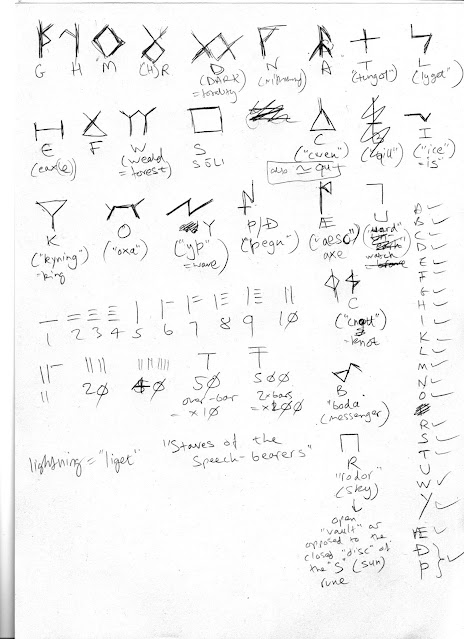Illuminating the Heroes...and More Runes

Getting back into serious work has been hard the past few days, but last night and this afternoon saw progress on the Gyldland Runic alphabet. First, the usable alphabet had to be defined - no Q, V, X, J or Z; no P (many words starting with 'P' in OE are Latin loan-words, and I wanted each Rune's name to have the initial letter which it represented), with additional characters for the 'specials', namely 'ash', and 'eth/thorn'. I set the six prime deities as the first six characters in the 'alphabet', with the others more or less randomly ordered as follows: So some slight modifications there from the first rough draft, with a couple of alternatives as well for good measure. This Rune system is clearly showing its pictographic origins, with one of my favourites being the 'B' - boda , = 'messenger', i.e raven. The Germanic reference there for readers ought to be clear enough (cf. Hugin and Munin). Also began a basic numbering s...
